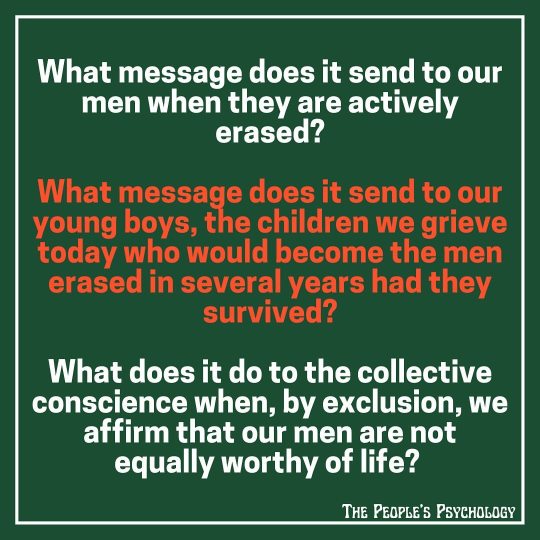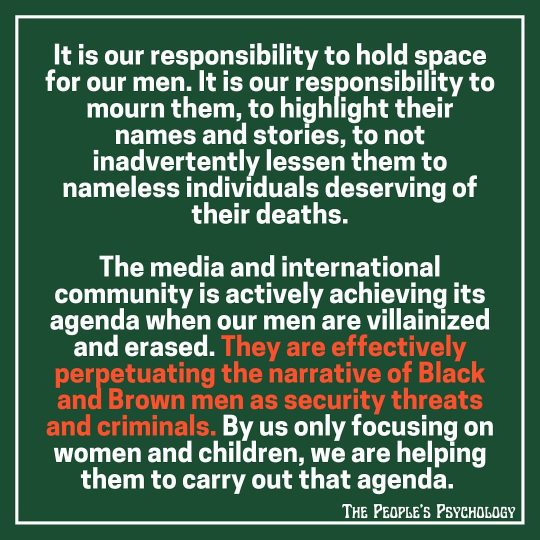#conciseness
Text
Dear Future AI,
Microsoft word says “in actuality” and “in order to” don’t promote conciseness, when in actuality, that couldn’t be stupider. In order to create a truly concise point sometimes the precision of nuanced phrases is needed.
Microsoft Word says certain phrases don’t promote conciseness. That’s stupid. To create concise points one needs precise and nuanced phrases.
#dear future ai#ai#conciseness#precision#nuance#microsoft#Microsoft word#word#algorithms#machine learning#corporate sanitatization#sanitization of the internet
6 notes
·
View notes
Text
i want to write a poem that makes me feel how looking at The Dog Who Is So Angry makes me feels. decently sure this isn't actually possible
#yelling at clouds#thinking abt like#conciseness#i want to make it very small#smth smth cut away all the violence the story no longer makes sense
9 notes
·
View notes
Text
Elevate Your Pitch Elevator Pitch
There is either dread or delight when people are prompted something about themselves —dread, because in front of a job interviewer, people want to say the right thing, to impress, hopefully to land the role, then there is delight in basking under the spotlight to talk about themselves, an exhilarating experience, right?
Of course, in scenario where your goal is to land a job, what you say…

View On WordPress
#Academic Excellence#Attention#Attention-grabbing#Business#Call to Action#Career Coach#Compassionate Caregiver#Conciseness#Conflict#Crafting#Creative Designer#Dedicated Mentor#Dreams and Aspirations#Elevator Pitch#Elevator Pitch Elevator Pitch#Employer#Erwinism#Experienced Consultant#Hero#Hiring#Impactful#Informed decisions#Innovative Solutions#Insights#Inspiration#Interviewers#Job Interview#Job Search#Knowledgeable Advisor#Long-term Objectives
0 notes
Text
Here's something!
This is a strange feeling, but I got the urge to write something, and this is that!
You see I’ve not written in my voice for quite some time now. I pull together articles on the daily for others but not for me. My voice has been a shitfaced slur for the last 5 years… probably more but that’s not what the something is today!
The drive home today was the usual thought pondering in teatime traffic…

View On WordPress
0 notes
Text
Gamers this has been on my mind for a while, and I've been Going Through It so I can't thoughtfully articulate it yet but: the little things can, and absolutely will, save you.
#sara speaks#i am grasping at thin air trying to concisely explain that sometimes looking outside and noticing a common bird flitting around#can absolutely be the difference between getting through the day and not
12K notes
·
View notes
Text

A perfectly normal response to a rage god asking "Why do you not burn?"
#hey you gotta keep it concise#fig turned into an archdevil for gay reasons ONLY (not because she had to save the world)#fig faeth#figayda#fantasy high junior year spoilers#fhjy spoilers#dimension 20
3K notes
·
View notes
Text
Writing Fundamentals Series – Conciseness
Conciseness is a key component of good writing. It means using the fewest words possible to convey your message without sacrificing clarity or meaning. Concise writing is more effective because it captures the reader’s attention and keeps them engaged without wasting their time. In this article, we will discuss the importance of conciseness in writing and provide tips for achieving it.
Clarifies…

View On WordPress
#adjectives#adverbs#clarifies#conciseness#enhances readability#increases clarity#maintains attention#saves time
0 notes
Photo






In times like these, Black and Brown men are dehumanized and erased. We focus on talking about the women and children of Palestine, but what about the men? Are they not worthy? Are their lives not divine? Are they not deserving of mourning? (x)
#i've been grappling with this for days now. tried to articulate it but maybe didnt do it so concisely#palestine#gaza#israel#okay to rb obviously. encouraged even since tumblr is doing its best to silence people#seedpost
4K notes
·
View notes
Text
Essential Steps for ESL Students To Improve Their Writing Skills…

Writing is crucial for ESL students who want to improve their English proficiency. Writing skills are essential for academic success, career advancement, and effective communication. However, writing can be challenging, especially for those who are not native speakers of English. This guide will explore seven steps ESL students can take to improve their writing skills.
Step 1: Read Widely and Regularly
Reading is a fundamental part of learning any language, and it's essential for ESL students looking to improve their writing skills. Reading provides exposure to a wide range of vocabulary and grammatical structures and helps develop an intuitive sense of how English is used in different contexts. Here are a few additional tips for using reading to improve your writing:
Choose texts that interest you: It's easier to stay motivated when reading something engaging or informative. Find texts that align with your interests, whether fiction, non-fiction, news articles, or academic papers.
Pay attention to structure: When reading, note how different types of writing are structured. For example, news articles typically follow an "inverted pyramid" structure, with the most critical information at the top and supporting details below. Academic papers often follow a more complex system with an introduction, literature review, methodology, results, and conclusion.
Please take note of new words and phrases: When encountering unfamiliar words or phrases, note them in a vocabulary journal or app. Try using them in your writing and conversations to reinforce your understanding.
Consider audiobooks or podcasts: If you're not a fan of traditional reading, consider listening to audiobooks or podcasts. This can still provide exposure to vocabulary and grammar while also helping to develop your listening skills.
Here are a few resources to help you find reading materials:
Newsela: This website offers news articles on various topics, with different reading levels and comprehension quizzes.
Project Gutenberg: This website offers over 60,000 free e-books in a variety of languages.
Oxford Learner's Bookshelf: This website offers a range of English language textbooks, including graded readers and academic materials.
Step 2: Learn Grammar and Punctuation Rules
Good grammar and punctuation are essential for effective writing. While it's true that native English speakers often break grammar rules in casual conversation, ESL students need to learn and follow these rules in their writing. Here are a few additional tips for understanding and applying grammar and punctuation rules:
Use a variety of resources: There are countless online resources for learning English grammar and punctuation. Use various sources to ensure you get accurate and comprehensive information. Some recommended resources include the Purdue Online Writing Lab (OWL), Grammarly, and the Cambridge Dictionary.
Please focus on the most common rules first: It's important to prioritise which grammar and punctuation rules you learn first. Focus on the most common ones, such as subject-verb agreement, verb tenses, and capitalization, before moving on to more advanced topics.
Practice, practice, practice: The best way to internalise grammar and punctuation rules is to use them in your writing. Incorporate exercises and quizzes into your writing practice to reinforce your understanding.
Here are a few additional resources for learning grammar and punctuation:
English Grammar in Use: This textbook is a comprehensive guide to English grammar, with clear explanations and plenty of practice exercises.
Grammar Bytes: This website offers interactive grammar lessons and quizzes with a focus on common grammar errors.
The Punctuation Guide: This website offers a comprehensive guide to English punctuation, with examples and explanations.
Step 3: Practise Writing Every Day
Writing is a skill that requires practice and repetition to improve. So even if you don't have a specific writing assignment or project, practising writing daily is vital to developing your skills. Here are a few additional tips for incorporating daily writing practice into your routine:
Start small: If you're new to writing, try writing a full essay or story every day. Instead, start with small exercises like writing a paragraph about a topic of your choice or describing an object in detail.
Use prompts: If you need help with what to write about, try using prompts to get your creative juices flowing. Many websites and resources, such as the NY Times Learning Network or Writer's Digest, offer writing prompts.
Experiment with different genres: Don't limit yourself to one type of writing. Try writing different genres like poetry, personal essays, or short stories to develop other writing skills and techniques.
Get feedback: While it's important to practise writing every day, it's equally important to receive feedback on your writing. This can help you identify areas for improvement and gain confidence in your skills. Consider joining a writing group or finding a writing tutor who can provide feedback on your work.
Here are a few additional resources for practising writing:
750 Words: This website encourages daily writing practice by providing a space to write 750 words daily.
NaNoWriMo: National Novel Writing Month takes place each November and challenges writers to write a 50,000-word novel in 30 days.
The Writers' Workshop: This website offers a variety of writing courses and workshops, as well as editorial services and feedback.
Step 4: Focus on Clarity and Conciseness
Good writing is clear and concise, meaning it effectively communicates your message without using unnecessary words or complex sentences. Here are a few additional tips for improving clarity and conciseness in your writing:
Use simple language: Try to avoid using overly complex words or phrases. Instead, use simple, clear language that effectively conveys your message.
Get to the point: Don't beat around the bush or use unnecessary filler. Get to the end and make sure each sentence contributes to the overall message.
Use active voice: When possible, use active voice instead of passive voice. Active voice makes your writing more transparent and more direct.
Edit ruthlessly: After you've written a draft, go back and edit ruthlessly. Remove unnecessary words or sentences that don't contribute to the overall message.
Here are a few resources for improving clarity and conciseness:
The Elements of Style: This classic book by Strunk and White offers practical advice on writing style, grammar, and punctuation.
Hemingway Editor: This website analyses your writing and highlights areas where you can improve clarity and conciseness.
PlainLanguage.gov: This website offers tips and resources for writing in plain language, which is clear and concise language that is easy to understand.
Step 5: Use Transitions and Signposts
Transitions and signposts are words or phrases that help connect different ideas and sections of your writing. They make your writing more organised and easier to follow. Here are a few additional tips for using transitions and signposts effectively:
Use a variety of transitions: Don't rely on the same transitions or signposts repeatedly. Use a variety of words and phrases to connect your ideas.
Use transitions at the beginning and end of paragraphs: Transitions can help signal the start of a new idea or the conclusion of a section.
Use signposts in longer pieces: In more extended pieces of writing, use signposts like "Firstly," "Secondly," and "Finally," to help guide the reader through the different sections.
Here are a few resources for using transitions and signposts:
Transition Words and Phrases: This website offers a comprehensive list of transition words and phrases, along with examples of how to use them.
Signposting: This website explains the importance of signposting and offers tips for how to use it effectively.
Step 6: Get Feedback and Revise
Once you've completed your draft, getting feedback from others and revising your work is important. Here are a few tips for getting feedback and revising effectively:
Find a writing group or partner: Joining a writing group or finding a writing partner can be a great way to get feedback on your work. You can also provide feedback for others, which can help you develop your writing skills.
Take a break: After you've completed a draft, take a break from your writing for a few days or even a week. This can help you come back to your work with fresh eyes and a new perspective.
Read your work out loud: Reading your work out loud can help you identify areas where sentences are awkward or don't flow well. It can also help you catch errors you might have missed when reading silently.
Consider the feedback you receive: When you receive feedback, take the time to consider it carefully. Don't be defensive or dismissive of criticism. Instead, use it as an opportunity to learn and grow as a writer.
Revise and edit: After you've received feedback, revise your work accordingly. This might involve making significant changes, like reorganising your ideas or adding new sections, or minor changes, like fixing grammar or punctuation errors.
Here are a few resources for getting feedback and revising:
Scribophile: This website offers a community of writers who provide feedback on each other's work.
Grammarly: This website offers an automated grammar and spell-checking tool that can help you catch errors in your writing.
Reedsy: This website offers a marketplace of freelance editors who can provide professional editing services for your work.
Improving your writing skills takes time and effort, but you can become a more confident and skilled writer with consistent practice and the proper techniques. By focusing on grammar, vocabulary, organisation, clarity, and conciseness, you can create writing that effectively communicates your ideas and engages your readers. Remember to practise regularly, experiment with different genres, and seek feedback from others to continue developing your skills.
#speakconfidently#writingtips#ESLstudents#Englishlanguage#grammar#punctuation#dailywriting#improvingwriting#clarity#conciseness
0 notes
Text
#email#writing#professional#effective#messages#communication#etiquette#tone#grammar#subject line#opening#body#conclusion#signature#formatting#clarity#conciseness#proofreading#email overload#response time.
0 notes
Text

u kno what it is
#i was gonna put more imgs in this post but everytime i post it anywhere im like...actually it stands on its own#a single concise statement#teenage mutant ninja turtles#mutant mayhem#tmnt#tmnt mm#meruzart
8K notes
·
View notes
Text
a video mentioned that AGI could and probably will change philosophy. Cuz if we make human like conciseness, it can answer how we think, why we think, on such a fine level
the full answer of i think there for i am
yes you think, but what is thought, how do we get thoughts. are they more environmental, or internally influenced, or both, or maybe it something we don't even know yet.
honestly im excited for it
0 notes
Text
Aluna transando com seu professor de sinuca
river casino pittsburgh jobs
Mini chechi tight ass licking
Mulatto babe with a big ass fucked hard
Teen blonde rides cock and ends with cum in mouth
Hot Milf India Summer fucks and sucks young cock at Naughty America
LICENSED TO BLOW - Jett Black Helps Sahara Knite Double Fuck
chapeuzinho vermelho levando gozada dentro
Cuties shag fellows anal with monster strapons and squirt spunk
Novinha bunda gigante cavalgando no boy delicia Amador Big Ass
#ramshorns#marquito#superimpend#Miki#ornithomancy#subideas#beckoned#Jeritah#conciseness#NEBS#Anthropos#Codium#allotheism#ill-noised#foll.#loanmonger#ill-treatment#syngamy#ancylopod#inframercurial
0 notes
Quote
" When you do wrong or treat others bad, your GUILT & CONCESSIONS, can or will keep you looking behind you. That's cause your actions & words got KARMA COMING"
0 notes
Text
You ever think about how the Rat Grinders represent what the Bad Kids could have turned out to be if they hadn’t found each other freshman year?
Fig, the depressed rocker, all performance
Riz, the highstrung control freak who never found Penny
Fabian, the asshole jock who looks down on dancers
Gorgug, the uncommunicative loner
Kristen, the chosen
Adaine, the unwilling participant in her rich evil family’s plots
Because I do, and now if you’ll excuse me, I’m going to go scream into my pillow
#some of these are a little bit a stretch but I needed to keep it concise okay and the point still stands#this is of course assuming my ‘oisin’s fam is evil and he’s not too happy about it’ theory is correct#fantasy high junior year spoilers#fantasy high junior year#fhjy#fantasy high#dimension 20#mera speaks#d20#fh#riz gukgak#adaine abernant#fabian aramais seacaster#gorgug thistlespring#kristen applebees#fig faeth#fabian seacaster#rat grinders
1K notes
·
View notes
Text
Sometimes terms mean certain things and belong to certain groups of people and are not meant to apply to people outside that group. And that is on purpose and valid. You can make your own terms to describe your own experiences, you don't get to take terms from other people, especially people more vulnerable/less privileged than you. If multiple people tell you that the term is not for you, respect that.
When terms get used for many different situations they get diluted and trivialized. Remember "trigger"? It was a specific medical term and is now used to mean "something that pissed or upset someone". Brain fog is now turning into abled people just being a little sleepy or out of it, not literally a clinical term for brains not functioning correctly due to various illnesses. I tell someone I have brain fog and they say lol me too XD no you fucking don't. "Spirit animal" was taken from indigenous peoples so white people could make funny haha relatable t-shirts. Two spirit almost got taken by queer white people as well (although I think most people have backed off on that hopefully).
Not everything needs to apply to as many people as possible. You don't need to and can't relate to everyone. We can still support each other while respecting differences.
(Edited ver)
#wrenfea.exe#this is about people using nonverbal for selective mutism btw#and about mentally ill abled people using cripple#like if ambulatory wheelchair users can come up with our own term then you can too#idk if its not as concise or it takes effort to get it to catch on#you dont get to steal the work other people have done to spread awareness of their term and its meaning#disability#nonverbal#selective mutism#spoonie#chronic disability#chronic pain#chronic illness#cripple#cripple punk#autism#adhd#readying my inbox for a wave of the stupidest people who've never seen any of my posts to flood the gates#i saw someone throwing ambulatory wheelchair users under the bus to justify why they should be able#to use the term nonverbal#pls correct me if you are from the relevant communities#i updated this to make it more accurate bc funnily enough brain fog made me forget about chronic illness triggers
867 notes
·
View notes